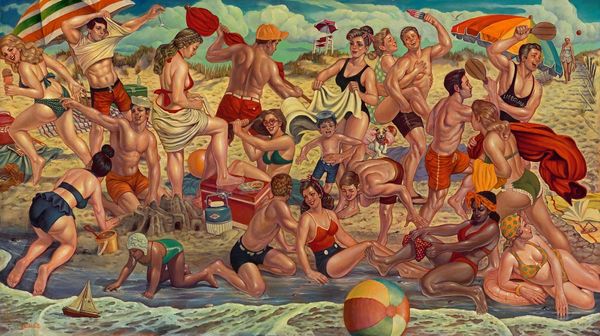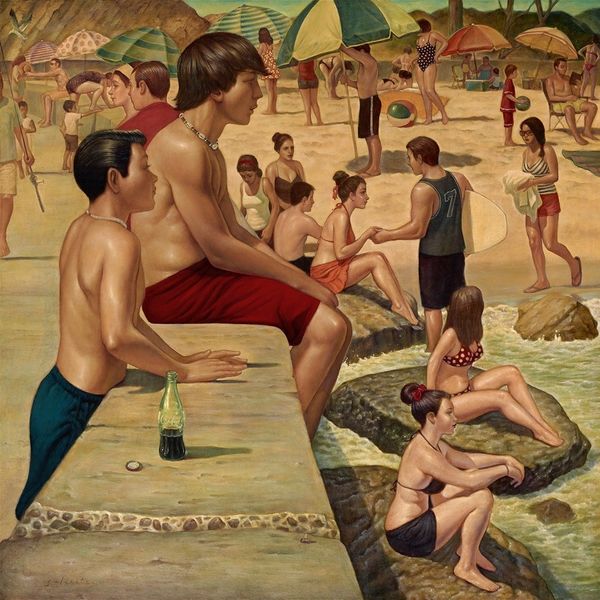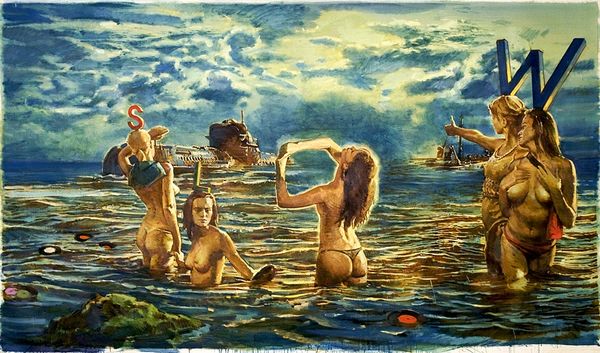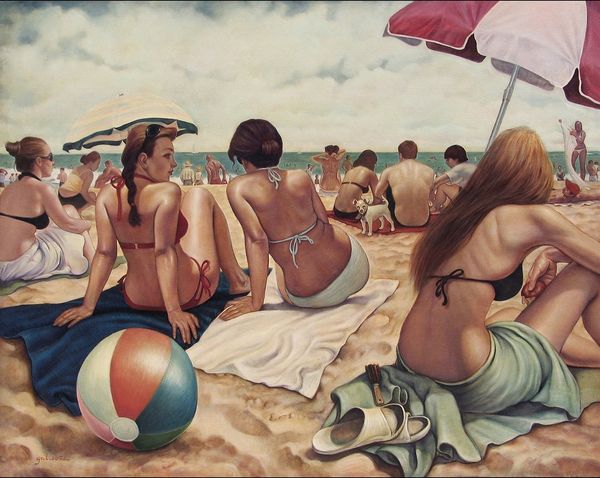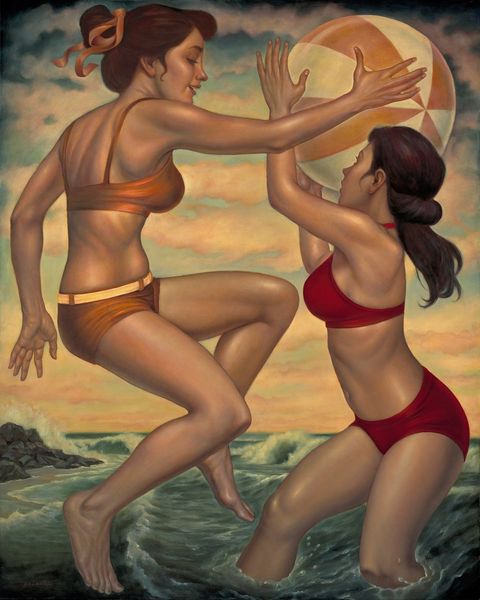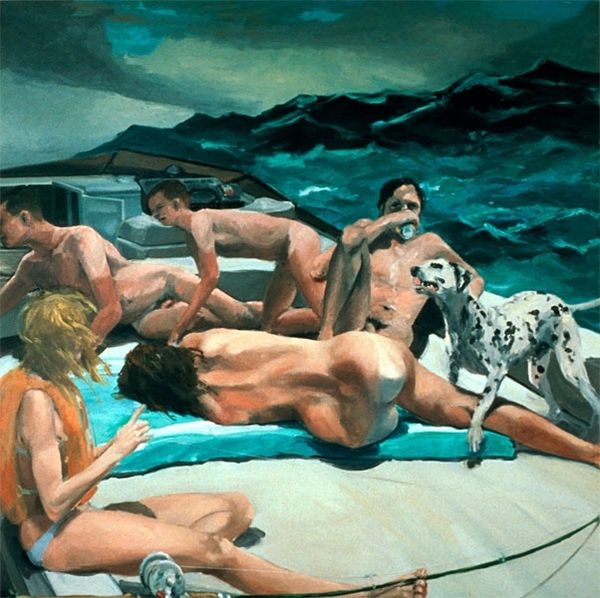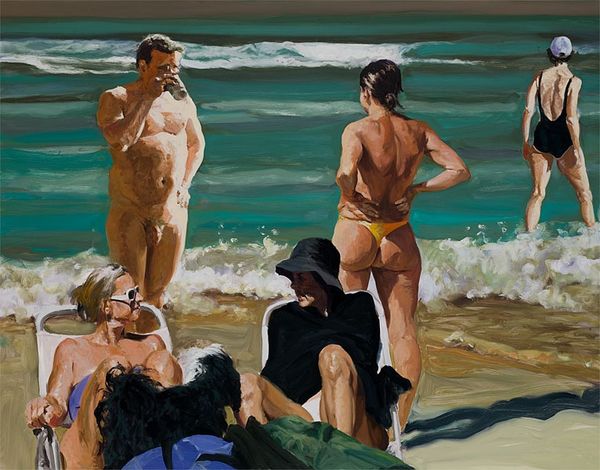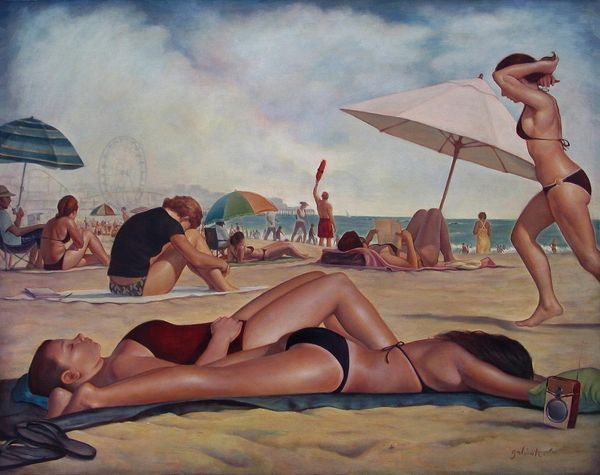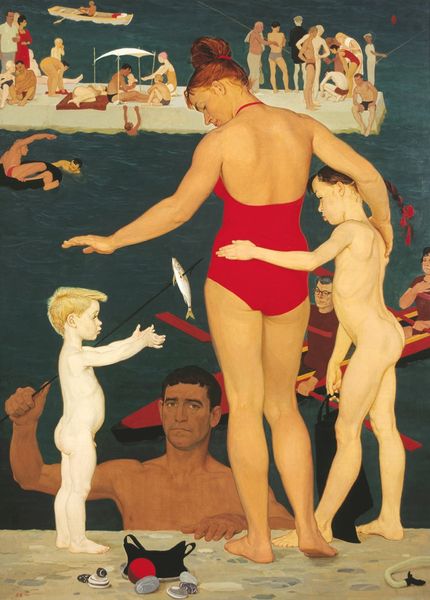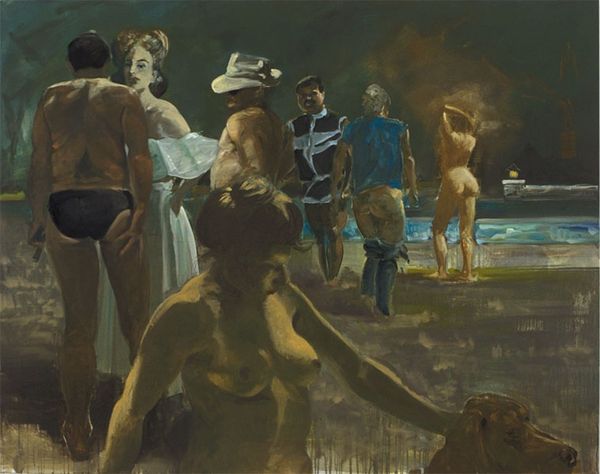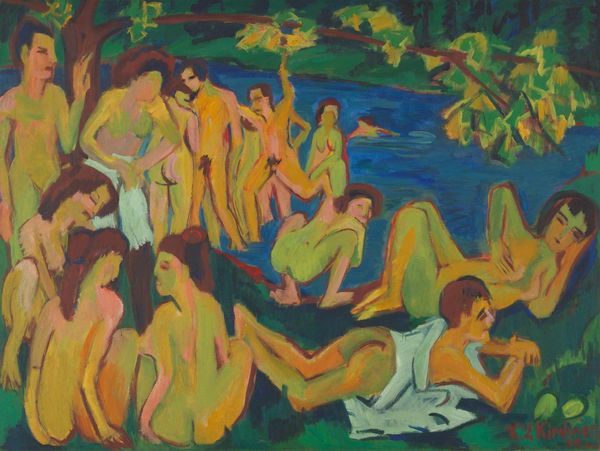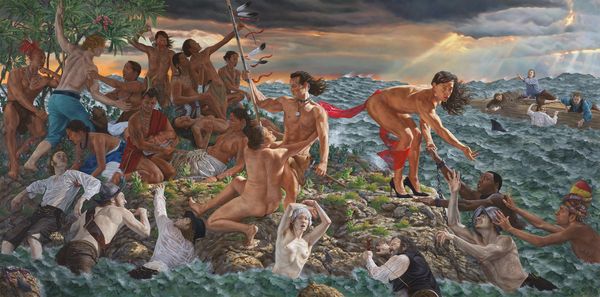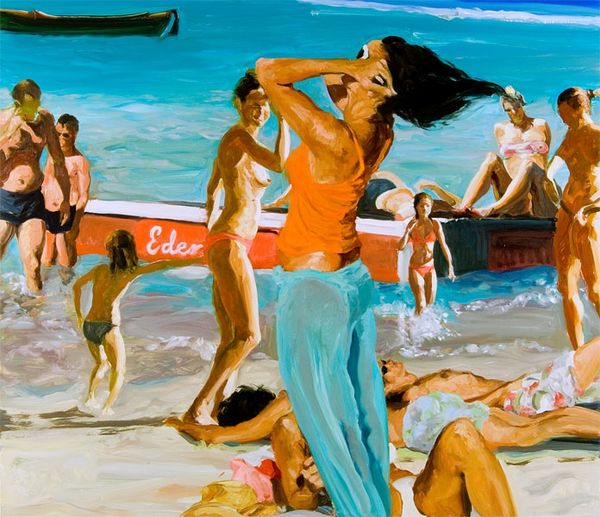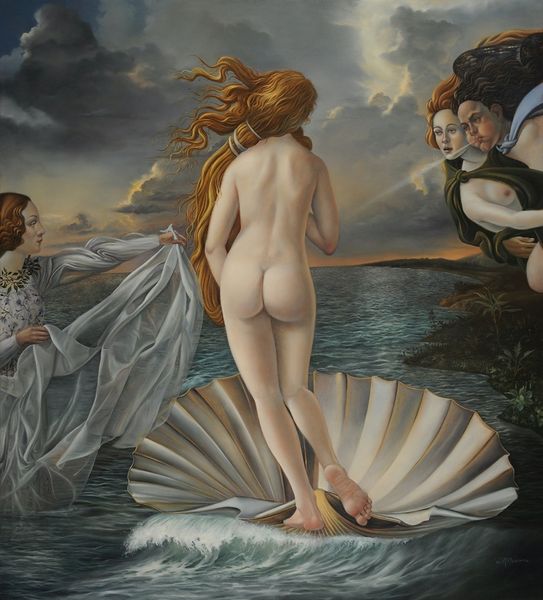
painting, oil-paint
#
figurative
#
painting
#
oil-paint
#
landscape
#
figuration
#
oil painting
#
genre-painting
#
realism
Copyright: Modern Artists: Artvee
Editor: So, we have Danny Galieote's "Bathers, Newport" - an oil painting of figures in water. I'm struck by the muted palette and the rather ordinary scene. It feels both contemporary and like a snapshot from another era, almost uncanny. What jumps out at you? Curator: What interests me immediately is the artist’s choice of oil paint to represent something so ephemeral and fluid as water and bodies in motion. It begs the question: why oil? What traditions are they engaging with, and potentially challenging? Think about the history of oil paint, it's association with wealth and high art, and how the labor of applying it impacts the message. Editor: That’s interesting, I hadn't considered that! The subject matter seems deliberately everyday, so using such a 'loaded' material does feel significant. It seems almost intentionally anti-monumental to represent an average beach outing with such ‘precious’ means. Curator: Exactly. The choice of subject – bathers, seemingly unposed and caught in the act – pushes us to think about how labor, both the artist's and the bathers, comes into play. The artist's repetitive gestures building the image mirror the bathers repeatedly entering and exiting the water, and invite the viewer to meditate on human gesture and rhythm as components in making and unmaking art. Does this labor create value, or is the consumption of leisure being critically examined here? Editor: So you're seeing a commentary on labor and leisure woven into the very materiality and production of the artwork itself? Curator: Precisely. The painting process becomes a mirror for social practices and prompts considerations about the production and consumption of art and leisure within specific cultural and economic contexts. Editor: Wow, I hadn't even thought about it that way! It gives the painting a whole new layer of meaning to consider how materials and labor connect. Thanks for this fresh perspective. Curator: Absolutely. And consider how the framing of such mundane activity becomes important through materiality: by elevating leisure in this way, who is allowed to be represented, or, better, "seen," through painting?
Comments
No comments
Be the first to comment and join the conversation on the ultimate creative platform.
